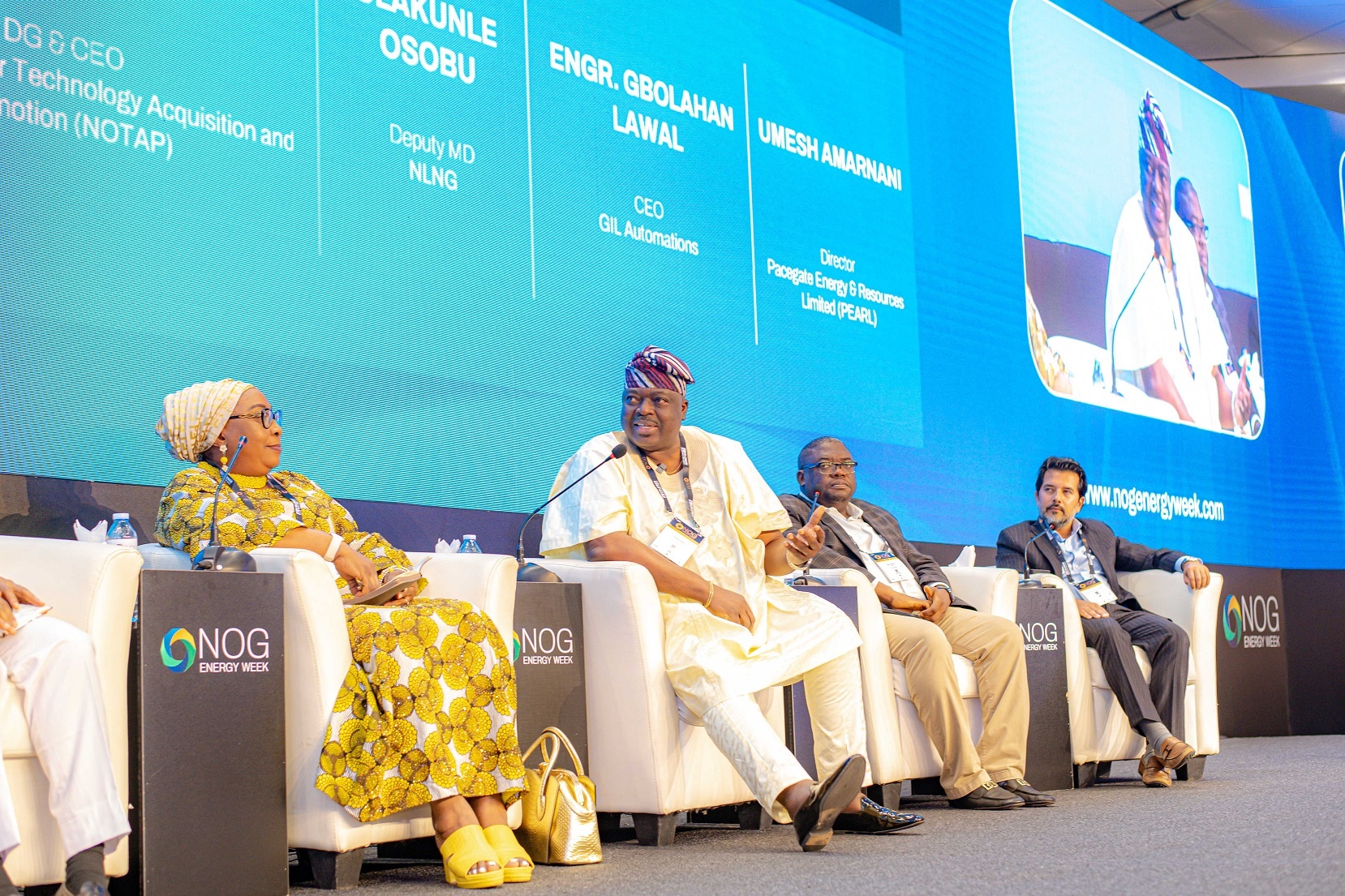Olakunle Osobu, NLNG’s Deputy Managing Director speaking at a Panel Session titled “Technology as a Local Content Imperative: From Adoption to Domestication” at the NOG Energy Week 2025 in Abuja… on Monday, June 30, 2025; Abuja, Nigeria.
At the pre-opening session of the ongoing NOG Energy Week 2025, Nigeria LNG Limited (NLNG) made a strong case for the domestication of technology as a critical step toward deepening local content and fostering national development in the country’s energy sector.
Representing the company at a high-level panel session themed “Technology as a Local Content Imperative: From Adoption to Domestication”, NLNG’s Deputy Managing Director, Olakunle Osobu, emphasized that technology must not only be adopted but truly owned, adapted, and understood by Nigerians if the country is to take full advantage of its energy potential.
“Our industry is one of the largest consumers of technology,” Osobu said. “To thrive in it, you need to be precise, predictive, and forward-looking. But beyond using technology, we are focused on simplifying it and promoting its adoption in a language and format our people can understand.”
Osobu underscored the urgent need to develop technology in a way that reflects national identity and inclusion.
Drawing parallels from global powers, he pointed out that countries like Germany and China develop and code using their native languages. “No country has advanced by learning technology in someone else’s language,” he stated. “We must begin to write algorithms in our local languages and build tools that reflect our voice and reality.”
He stressed that domestication of technology should begin with access and education: “If people can read and write, they should be able to use technology. That’s where we begin. That’s how we expand access.”
Using NLNG’s landmark Train 7 project as a model for success, Osobu showcased the company’s commitment to local content development. “Over 90% of the contractors working on Train 7 are Nigerians – including the Project Director. This is only possible because, over the years, Nigerians have worked alongside international partners in building six previous trains. By the time we got to Train 7, we were ready to lead. And with strong institutional support from NCDMB, we made it happen.”
He also envisioned a broader continental role for Nigerian energy professionals, noting their global footprint. “Nigerians are present on oil rigs across the world and remain in high demand from Calgary to Singapore. As more African countries like Namibia, Senegal, Ghana, Mozambique, and Angola discover oil, it’s time Nigerian expertise begins to shape Africa’s energy future.”
Highlighting tools like the African keyboard, which supports local languages in digital communication, Osobu praised such innovations as steps towards a uniquely African technological identity.
He concluded by reaffirming NLNG’s dedication to inclusive, locally rooted innovation. “As we continue to adopt and promote technology at NLNG, our goal is to ensure that this knowledge is rooted in our local context, simple, inclusive, and transformative.”
The message from NLNG, underlined by its sustained local content efforts and forward-looking vision, is clear: Africa must lead its energy future – and it starts by owning the tools to build it.








Barınaktan, sokaktan ya da gönüllülerden sahiplendirilen sevimli dostlarımız sahipleniyorum.com’da sizi bekliyor. Hayvanseverler için hazırlanan modern arayüzü ve hızlı filtreleme seçenekleriyle aradığınız dostu kolayca bulun.